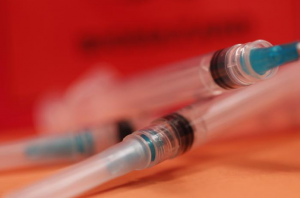Measles-vectored vaccine induces Chikungunya antibodies: Study
A modified, conventional measles vaccine has the potential to act against the Chikungunya virus. This is the result of a study at the University Clinic for Clinical Pharmacology of the MedUni Wien (Medical University of Vienna), which has now been published in the top journal The Lancet Infectious Diseases.
Up until now, there has been no effective vaccine against the Chikungunya virus and the associated feverish illness which can prove lethal, and is particularly prevalent in Latin America and the Caribbean.

Image/CDC
Scientists at the MedUni Wien led by Bernd Jilma, and in cooperation with the Institut Pasteur in Paris, the Walter Reed Army Institute of Research in the USA, and the Vienna biotechnology company Themis Bioscience GmbH, have succeeded in introducing tiny surface particles of the Chikungunya virus into the human body using the measles vaccine and proving its effectiveness.
Jilma: "The modified measles virus is planted into people in Trojan horse style, and there it produces the corresponding surface particle of the Chikungunya virus. This occurs to such a low concentration that no symptoms of the disease appear. However, the Chikungunya particles are still able to stimulate the lymphatic system and to trigger the antibody production against the virus. These antibodies are then available at any time should an infection with the Chikungunya virus really occur. As a result, the disease cannot break out." The technology itself was developed at the Institut Pasteur, implemented by Themis Bioscence GmbH and has now been successfully clinically tested at the MedUni Wien using 42 test persons.
A further positive effect: The modified virus also strengthens immunity against the classic measles infection. "If the vaccine is changed accordingly, it could also be effective against dengue fever or other viruses", according to Jilma. The findings must now be clinically evaluated in Phase II and Phase III studies; utilization in practice could be feasible in three to five years, according to the scientists. An active immunization is possible using a one or two-part vaccination.